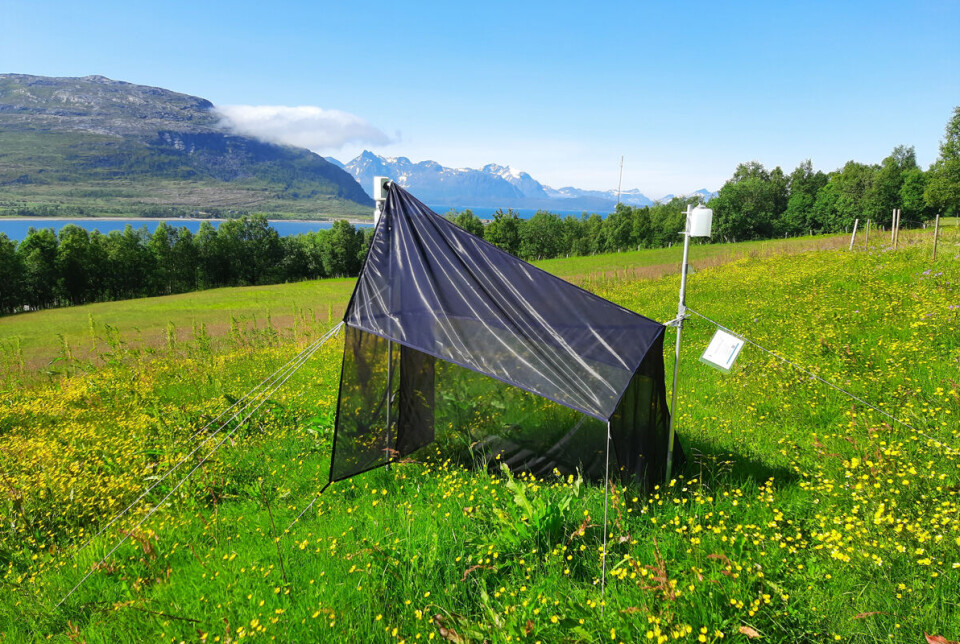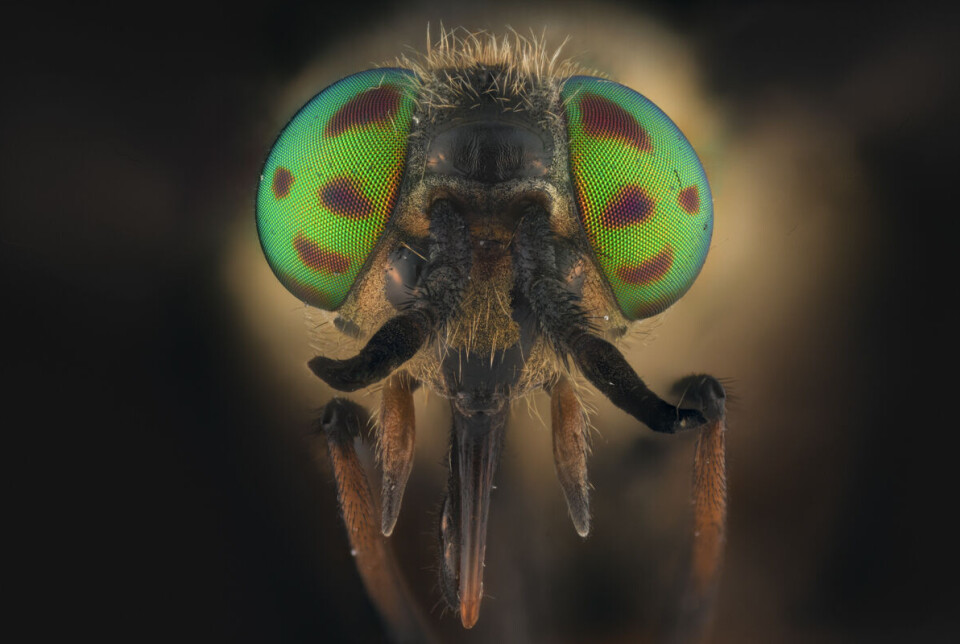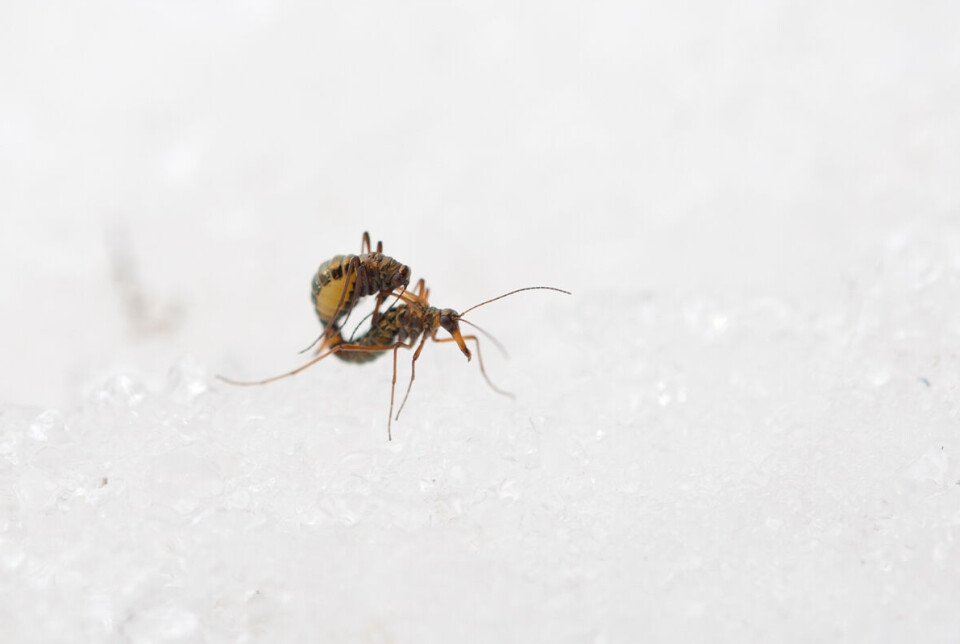THIS CONTENT IS BROUGHT TO YOU BY NINA - Norwegian Institute for Nature Research - read more

Insects prefer cold winters with lots of snow
The number of insects has decreased in Norway over the past four years. The weather seems to affect them.
That insects thrive in warm summers is understandable. It may be more surprising that cold winters with high precipitation have a positive effect.
Researchers at the Norwegian Institute for Nature Research (NINA) have investigated the impact of winter and spring weather on insect biomass.
“In the four years we have been collecting insects, biomass has decreased. Hopefully, the trend is short-term and will reverse with more favourable weather conditions. At the same time, we fear climate change may have negative effects on insects in the future,” researcher and project manager Jens Åström says.
The researchers have looked at how precipitation and temperature affect the number of insects collected in traps in forests and meadows across large parts of Norway. They measure the quantity as the weight of insects a standardised trap collects per day.
Warm and not too dry weather in summer has a positive effect. A dry and mild winter creates challenges.

Snow as insulation
"It's challenging for insects to survive the winter in Norway, but a thick snow cover insulates well. Based on this, we assume that higher temperatures, which naturally will result in less snow, will affect insects," explains Åström.
Similarly, an early spring can cause insects to become active a bit too early. Precipitation in the form of rain or a return to more winter-like conditions can then impact their survival.
So far, the National Monitoring Program for insects in Norway has estimated an approximate 14 per cent decrease in insect biomass annually from 2020 to 2023.
"For the program, it is reassuring that we are able to detect time trends, but we naturally hope that the decline is short-term," says Åström.

Insects working for nature and people
Insects play a crucial role in most ecosystems on Earth. They break down plant material, so that nutrients can be used again. They are also food for other animals and birds.
Additionally, they pollinate plants and help regulate pest populations. Several studies show that insect populations have been greatly reduced in recent years, especially in Europe.
"The consequences are difficult to predict in detail, but entire ecosystems could potentially be affected. It's therefore important to understand what influences the occurrence of insects, for example, land use or changes in climate. To be able to do that in Norway, continuous long-term and country-wide monitoring is crucial," says Åström.
Monitoring becomes nationwide
In 2023, the area covered by the Monitoring Program was extended to also include Northern Norway, which involves a large expansion of weather conditions and latitudes covered by the Program.
In 2024, Western Norway will also be included, making the monitoring of meadows nationwide. Forests are currently only monitored in Eastern Norway.
The Monitoring Program is run by NINA and financed by the Norwegian Environment Agency.
References:
Müller et al. 'Weather explains the decline and rise of insect biomass over 34 years', Nature, 2024. DOI: 10.1038/s41586-023-06402-z (Abstract)
Åstrøm et al. Insektovervåking på Østlandet, Sørlandet, Trøndelag og Nord‐Norge: Rapport fra feltsesong 2023 (Insect monitoring in Eastern Norway, Southern Norway, Trøndelag, and Northern Norway: Report from the 2023 field season), report by NINA, 2024.
———
Read the Norwegian version of this article on forskning.no

This content is paid for and presented by NINA - Norwegian Institute for Nature Research
This content is created by NINA's communication staff, who use this platform to communicate science and share results from research with the public. NINA is one of more than 80 owners of ScienceNorway.no. Read more here.
More content from NINA:
-
How will climate change affect lakes worldwide?
-
White-tailed sea eagles are breeding in Ireland again after more than a century
-
Could a tunnel help wild reindeer in Norway?
-
Norwegian white-tailed sea eagles are helping to rebuild a lost population in Ireland
-
1 in 4 freshwater species are at risk of extinction: "It's not too late to take action"
-
Weather radars reveal where birds migrate




































